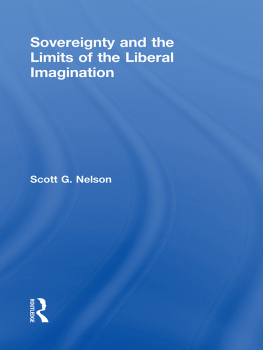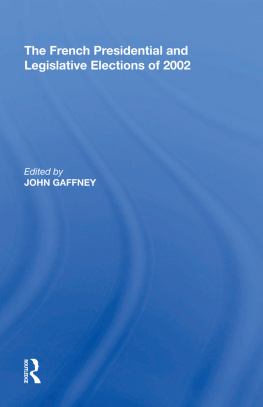Jennifer Gaffney - Political Loneliness: Modern Liberal Subjects in Hiding
Here you can read online Jennifer Gaffney - Political Loneliness: Modern Liberal Subjects in Hiding full text of the book (entire story) in english for free. Download pdf and epub, get meaning, cover and reviews about this ebook. year: 2020, publisher: Rowman & Littlefield, genre: Romance novel. Description of the work, (preface) as well as reviews are available. Best literature library LitArk.com created for fans of good reading and offers a wide selection of genres:
Romance novel
Science fiction
Adventure
Detective
Science
History
Home and family
Prose
Art
Politics
Computer
Non-fiction
Religion
Business
Children
Humor
Choose a favorite category and find really read worthwhile books. Enjoy immersion in the world of imagination, feel the emotions of the characters or learn something new for yourself, make an fascinating discovery.

- Book:Political Loneliness: Modern Liberal Subjects in Hiding
- Author:
- Publisher:Rowman & Littlefield
- Genre:
- Year:2020
- Rating:5 / 5
- Favourites:Add to favourites
- Your mark:
- 100
- 1
- 2
- 3
- 4
- 5
Political Loneliness: Modern Liberal Subjects in Hiding: summary, description and annotation
We offer to read an annotation, description, summary or preface (depends on what the author of the book "Political Loneliness: Modern Liberal Subjects in Hiding" wrote himself). If you haven't found the necessary information about the book — write in the comments, we will try to find it.
Political Loneliness: Modern Liberal Subjects in Hiding — read online for free the complete book (whole text) full work
Below is the text of the book, divided by pages. System saving the place of the last page read, allows you to conveniently read the book "Political Loneliness: Modern Liberal Subjects in Hiding" online for free, without having to search again every time where you left off. Put a bookmark, and you can go to the page where you finished reading at any time.
Font size:
Interval:
Bookmark:

EBSCO Publishing : eBook Collection (EBSCOhost)
AN: 2508998 ; Jennifer Gaffney.; Political Loneliness : Modern Liberal Subjects in Hiding
Account: s1226075
Philosophical Projections
Series Editor: Andrew Benjamin, Distinguished Professor of Philosophy and the Humanities, Kingston University, UK, and Professor of Philosophy and Jewish Thought, Monash University, Australia
Philosophical Projections represents the future of modern European philosophy. The series seeks to innovate by grounding the future in the work of the present, opening up the philosophical and allowing it to renew itself, while interrogating the continuity of the philosophical after the critique of metaphysics.
Titles in the Series
Foundations of the Everyday: Shock, Deferral, Repetition , Eran Dorfman
The Thought of Matter: Materialism, Conceptuality and the Transcendence of Immanence , Richard A. Lee
Nancy, Blanchot: A Serious Controversy , Leslie Hill
The Work of Forgetting: Or, How Can We Make the Future Possible? , Stephane Symons
On the Brink: Language, Time, History, and Politics , Werner Hamacher, edited by Jan Plug
Political Loneliness: Modern Liberal Subjects in Hiding , Jennifer Gaffney
Refugees: Towards a Politics of Responsibility (forthcoming), Nathan Bell
Published by Rowman & Littlefield
An imprint of The Rowman & Littlefield Publishing Group, Inc.
4501 Forbes Boulevard, Suite 200, Lanham, Maryland 20706
www.rowman.com
6 Tinworth Street, London SE11 5AL, United Kingdom
Copyright 2020 by Jennifer Gaffney
All rights reserved . No part of this book may be reproduced in any form or by any electronic or mechanical means, including information storage and retrieval systems, without written permission from the publisher, except by a reviewer who may quote passages in a review.
British Library Cataloguing in Publication Information Available
Library of Congress Cataloging-in-Publication Data
Names: Gaffney, Jennifer, 1987-author.
Title: Political loneliness : modern liberal subjects in hiding / Jennifer Gaffney.
Description: Lanham : Rowman & Littlefield, 2020. | Series: Philosophical projections | Includes bibliographical references and index.
Identifiers: LCCN 2020008579 (print) | LCCN 2020008580 (ebook) | ISBN 9781786606945 (hardcover) | ISBN 9781786606952 (epub)
Subjects: LCSH: Alienation (Philosophy) | Communities. | Political sciencePhilosophy. | Arendt, Hannah, 1906-1975.
Classification: LCC B808.2 .G34 2020 (print) | LCC B808.2 (ebook) | DDC 320.01dc23
LC record available at https://lccn.loc.gov/2020008579
LC ebook record available at https://lccn.loc.gov/2020008580
 The paper used in this publication meets the minimum requirements of American National Standard for Information SciencesPermanence of Paper for Printed Library Materials, ANSI/NISO Z39.48-1992.
The paper used in this publication meets the minimum requirements of American National Standard for Information SciencesPermanence of Paper for Printed Library Materials, ANSI/NISO Z39.48-1992.
Never before have we been so interconnected, so accessible to one another. The global networks of technology and commerce that order our daily lives have made even the furthest corners of the earth reachable in a single Skype call. They have made possible the exchange of commodities across every part of the world, and they have granted to anyone with a smartphone and a social media account access to the most important political and cultural movements taking place across the globe. Never before have we been able so vigilantly to keep track of one another, to communicate so quickly our ideas and opinions, and to share so publically the details of our private lives. And yet, while these things no doubt mark our age as one of heightened togetherness, it is the provocation of this work that we have never before been so lonely. This paradoxthat we are more extremely together and more extremely apart than ever beforemakes the loneliness of the current age especially peculiar. The task of the present inquiry is to develop a framework for interpreting this peculiar lonelinessor the fact that in an era of hyperbolic interconnectedness, there is nevertheless a widespread sense that we belong nowhere, that we have lost our nearness to others, and that we are neither supported by nor responsible for the communities in which we find ourselves.
Philosophical inquiry into the peculiar loneliness of the current age is by no means new. Martin Heidegger, for instance, draws attention to it in his 1951 essay The Thing when he says:
All distances in time and space are shrinking . Man now reaches overnight, by plane, places which formerly took weeks and months of travel. He now receives instant information by radio, of events which he formerly learned about only years later, if at all... the peak of this abolition of every possibility of remoteness is reached by television, which will soon pervade and dominate the whole machinery of communication.... Yet, the frantic abolition of all distances brings no nearness... despite all conquest of distances the nearness of things remains absent.
We see, then, that the peculiar loneliness of the current age and the problematic it creates regarding the possibilities for authentic communal life is well-trodden territory in twentieth- and twenty-first-century continental thought. Yet, as central as this problematic has been, its political stakes remain underdeveloped. Taking my point of departure from these critiques of the instrumental rationality of the modern age, it is the goal of the present inquiry to develop the peculiar loneliness of the current age in a political register. Central to this work is the claim that neoliberal subjectivity has rendered us lonely in ways that have yet to be fully appreciated but that are nevertheless decisive for thinking the possibilities for authentic communal life today. In this, my aim is to frame the problem of loneliness in terms of the political alienation of modern life, a form of alienation that I will suggest owes its existence to the political structures that we have inherited from the liberal tradition and the forms of subjectivity that these structures produce.
Whereas much has been said about the existential, psychoanalytic, and social dimensions of loneliness, scholarly inquiry into the political significance of this problem has only recently begun to take shape. Jill Stauffer has carved out a space for thinking the problem of loneliness politically in her recent work Ethical Loneliness: The Injustice of Not Being Heard . Stauffer conceives of loneliness as a symptom of the unwillingness, often on the part of just-minded people, to listen to those who have suffered injustice. She thus defines loneliness as
the isolation one feels when one, as a violated person or as a member of a persecuted group, has been abandoned by humanity, or by those who have power over ones life possibilities. It is a condition undergone by persons who have been unjustly treated and dehumanized by human beings and political structures, who emerge from that injustice only to find that the surrounding world will not listen to or cannot properly hear their testimony their claims about what they suffered and about what is now owed to themon their own terms.
Next pageFont size:
Interval:
Bookmark:
Similar books «Political Loneliness: Modern Liberal Subjects in Hiding»
Look at similar books to Political Loneliness: Modern Liberal Subjects in Hiding. We have selected literature similar in name and meaning in the hope of providing readers with more options to find new, interesting, not yet read works.
Discussion, reviews of the book Political Loneliness: Modern Liberal Subjects in Hiding and just readers' own opinions. Leave your comments, write what you think about the work, its meaning or the main characters. Specify what exactly you liked and what you didn't like, and why you think so.











